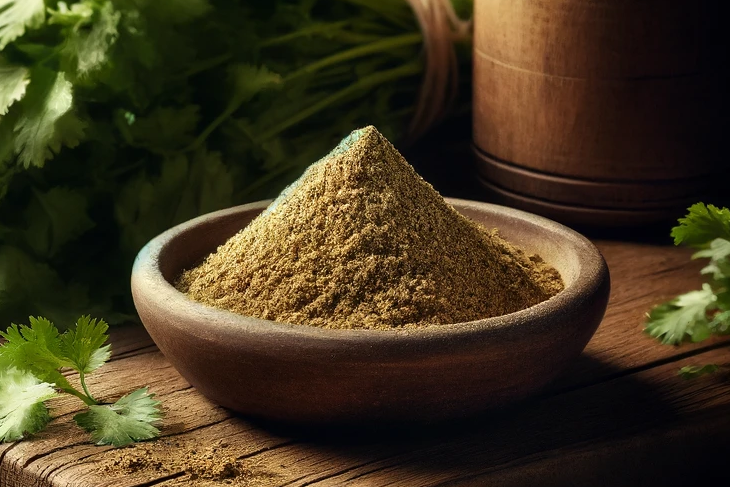Cumin powder

Cumin powder, a spice finely ground from the dried seeds of the cumin plant, has been an integral part of human cuisine worldwide for centuries. Known for its distinctive aroma and health-promoting properties, the question arises as to whether cumin powder can also be a healthy addition to our dogs' diet. In this article, we explore what exactly cumin powder is, its potential benefits and drawbacks for dogs and provide a comprehensive assessment of its suitability for the canine diet.
What is cumin powder?
Cumin powder is obtained from the seeds of the Cuminum cyminum plant, which is native to southwest Asia and is cultivated in many parts of the world. The seeds are dried and then ground into a fine powder that is prized in the kitchen for its warm, earthy aroma and slightly bitter taste. Cumin is rich in iron, contains antioxidants and offers a range of health benefits.
Benefits of cumin powder for dogs
Digestive support
Cumin powder can aid digestion and help relieve digestive discomfort such as bloating and cramping. Its antispasmodic properties can help to relax the digestive tract.
Antimicrobial properties
The antimicrobial properties of cumin powder can help inhibit the growth of harmful bacteria and fungi in the digestive tract, leading to a healthier gut flora.
Source of iron
Cumin powder is a good source of iron, an essential mineral that is important for blood formation and oxygen transportation in the body.
Disadvantages and risks
Despite the potential benefits, there are also concerns regarding the use of cumin powder in dogs.
Potential toxicity
In large quantities, cumin powder could be toxic to dogs. Symptoms of overdose could include indigestion and other health problems.
Risk of gastrointestinal discomfort
Although cumin powder can aid digestion, it could cause gastrointestinal distress in some dogs, especially those with sensitive stomachs.
Lack of specific research
There is limited research on the use and safety of cumin powder specifically in dogs. Without specific studies, it is difficult to make accurate dosage recommendations or assess potential long-term effects.
Use with caution
Cumin powder can be a healthy addition to your dog's diet in certain circumstances, especially when it comes to aiding digestion or providing iron. However, the potential risks should not be ignored. As with any supplement, it is important to start with small doses and monitor the dog's reaction closely. Cumin powder should never be considered a substitute for a balanced diet, but can be a useful supplement when used wisely. The health and well-being of your dog should always be the main focus.
If you notice any signs of hypersensitivity or poisoning in your dog, you should see your vet immediately. We are not a substitute for a vet, but we try to be as accurate as possible. Every dog reacts differently and we recommend you get a second opinion or consult your vet if in doubt.
Stay healthy and take good care of your four-legged friend!😊
Similar to Cumin powder
Coriander powder is made by drying the seeds of the coriander plant and then grinding them into a fine powder. It is known for its slightly citrusy, nutty flavor and is often used in culinary...
Fennel powder is made from the dried seeds of the fennel plant (Foeniculum vulgare), an herb known for its aromatic properties. It is a fine, greenish-brown powder that is often used in cooking for...
Aniseed powder is made from the dried seeds of the anise plant, which belongs to the Apiaceae family. Grinding these seeds produces the fine powder, which has found its place not only in human...
Cinnamon is the dried bark of various tree species from the laurel family. There are various types of cinnamon, which differ in taste, color and coumarin content. Coumarin is a natural flavoring...



